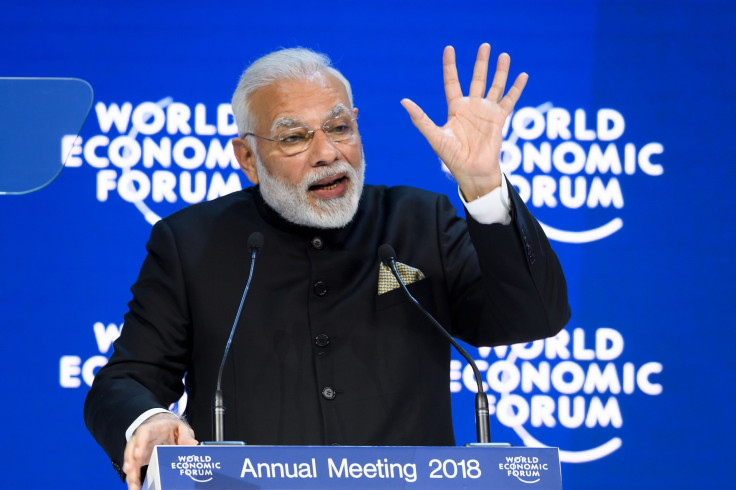Amazon And Walmart Could Face The Music As Modi Begins His Second Term

The results of India's recently concluded general elections don't augur well for the likes of Amazon (NASDAQ:AMZN) and Walmart (NYSE:WMT). Both American retail giants will now have to work once again with a government led by Prime Minister Narendra Modi, at least for the next five years.
As a result, Amazon and Walmart might have to contend with another half-decade of protectionist policies that could stifle their growth in this lucrative e-commerce market. Let's see why.
Modi government's protectionism has been a thorn in the flesh
The Modi-led right-wing government has put the interests of domestic retailers at the forefront in a bid to garner the popular vote after facing setbacks in regional elections at the end of 2018. The bad news for Amazon and Walmart is that the strategy seems to have worked.
Earlier this year, the Indian government updated its foreign direct investment (FDI) rules in a bid to give homegrown retailers a leg up against big corporations such as Amazon and Walmart. The rules hamstrung the two retail giants because they were no longer allowed to sell items from those businesses in which they held an equity stake.
As a result of this move, Amazon and Walmart's Flipkart are no longer allowed to source bulk inventories through their wholesale units for vendors, who would then sell those items on the e-commerce platforms. This move was made with a view to limit the discounting capability of Flipkart and Amazon.
Moreover, the two companies are no longer allowed to enter into exclusive sales agreements as they used to, thereby opening up the market to more players. Now that the Modi-led government has stormed back to power with a bigger majority on the back of a nationalistic agenda, Amazon and Walmart should be prepared to face more protectionism in India's e-commerce space.
Late last year, a consortium of small- and medium-size retailers in India complained to the prime minister's office regarding exploitation by the likes of Amazon and Walmart. Given that the Indian middle class played an important role in giving the prime minister a second term, the incoming government can be expected to appease them with favorable e-commerce guidelines.
However, any e-commerce measures that the new government passes with a view to protecting small- and medium-size retailers in India will also benefit billionaire Mukesh Ambani's Reliance Retail. This could spell trouble for Amazon and Walmart.
Reliance makes its play
Reliance Retail currently operates over 10,400 stores in India spread across more than 6,600 cities, with an estimated annual footfall of more than 500 million. In April this year, the company reportedly launched its food and grocery apps among employees for testing purposes, which is said to be a precursor to a formal launch later in 2019.
Reliance's massive retail presence in India gives it an inherent advantage over the likes of Walmart and Amazon. Ambani is looking to use another of his weapons -- the Reliance Jio telecom business -- in his bid to dominate the Indian e-commerce space.
The company has started distributing Jio point-of-sales (PoS) terminals and the MyJio app to local mom-and-pop stores in India. Reliance is reportedly making such a move to make it easier for stores to order goods from wholesalers and then sell them to customers.
The advantage for Reliance is that it already has more than 300 million telecom subscribers, so it can easily push its apps to its existing customers, who can order items and easily pick them up or get them delivered from the local stores. This will help Reliance build a hybrid online-offline retail channel.
In fact, Bank of America Merrill Lynch estimates that Reliance's entry into the PoS space will expand the base of digitized retail stores from the current 15,000 to 5 million by 2023. The company can use these retail stores to fulfill online orders, so it is on its way to rapidly expanding its presence in the Indian retail space.
Finally, considering the fact that Reliance is a local player, it falls outside of the Indian government's FDI rules. As a result, it can purchase inventories in bulk and supply the same to retailers, who can then sell them at a discounted rate through both online and offline channels.
So don't be surprised to see Amazon and Walmart lose their grip over the Indian e-commerce space, where they currently enjoy a combined market share of more than 70%. In case the incoming government decides to throw more regulations at Amazon and Walmart, their growth in this market will be constrained as a formidable domestic player lurks in the shadows.
John Mackey, CEO of Whole Foods Market, an Amazon subsidiary, is a member of The Motley Fool's board of directors. Harsh Chauhan has no position in any of the stocks mentioned. The Motley Fool owns shares of and recommends Amazon. The Motley Fool has a disclosure policy.
This article originally appeared in The Motley Fool.





















